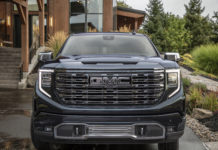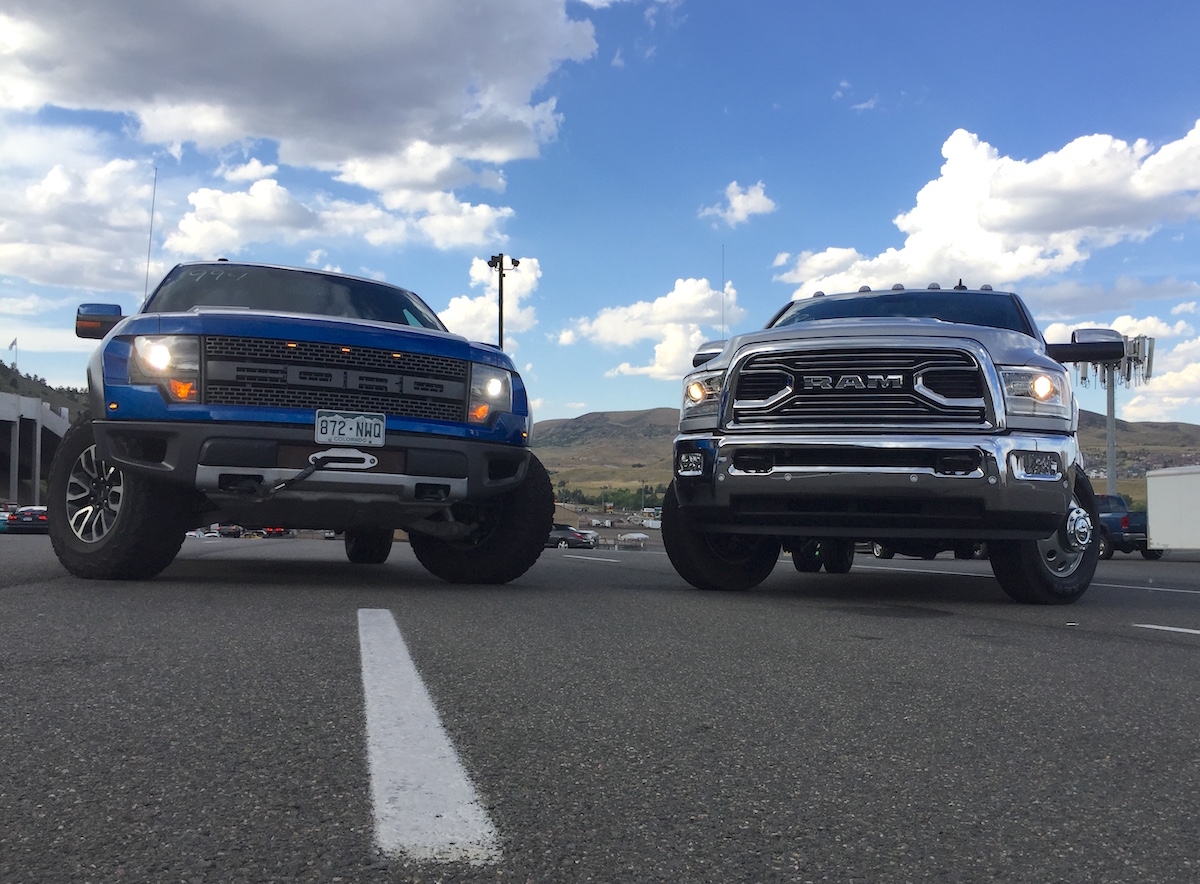
GMC is bringing something new to pickup trucks that has mostly been reserved for high-end sports car in the automotive industry: carbon fiber.
But it’s important to be clear, the new CarbonPro bed that will be available on the GMC Sierra AT4 and Denali models is not just carbon fiber, it is a caron fiber composite.
ALSO SEE: There is a Heartfelt Easter Egg Underneath the New GMC CarbonPro Bed
Specifically, it is a proprietary material known as Sereebo (which stands for “save the earth, revolutionary & evolutionary carbon”), developed thanks to a partnership between GM and Tejin, a large corporation focused on high-performance fibers. The process of creating the Sereebo sees a nylon 6 resin combined with a mat of chopped carbon fibers that are one-inch long, creating a material that is both strong and light.

To be exact, the CarbonPro is 62 pounds lighter than an uncoated steel bed and over 100 pounds lighter than a bed with bedliner in it. GMC says you don’t need bedliner inside the CarbonPro either as it is already both resistant to damage and has a corrugated surface to make sure there is grip.
Other advantages of using this material include being able to reuse all of excess that is trimmed off and being able to form nice sharp corners rather than having rounded edges everywhere like you would with steel. Fourteen tie-downs have been incorporated into the bed, two more than the standard steel bed, and those two extras are to service the motorcycle tire pockets that have been molded into the front bed, specially to help hold dirt bikes or a Harley-Davidson in place.

The beds themselves are manufactured at Continental Structural Plastics in Huntington, IN, another major automotive supplier that Tejin owns. The facility is 350,500 square feet and employs approximately 550 employees.
The process begins with each piece of Sereebo being heated up and stamped into a certain piece. As you can see from the diagram below, there are about 20 separate pieces which are all created on their own and then are joined together, primarily using high-strength adhesives.

Validation for the CarbonPro was a long process, as GM had to test these beds in extreme temperatures and rugged conditions. And to make sure every bed that rolls off the line is up to standards, there is a team at CSP dedicated to tearing apart a CarbonPro on a regular schedule.
They use simple hand tools, a hammer and crowbar or chisel, to pick the bed apart one seam at a time, looking for any imperfections in the build process.
The CarbonPro should become available sometime in the summer of 2019, with production ramping up to full capacity by 2020.

General Motors Executive Chief Engineer Tim Herrick (left) and GM Engineering Group Manager Mark Voss Wednesday, April 24, 2019 during the GMC Carbon Pro media event at Continental Structural Plastics in Huntington, Indiana. (Photo by Jeffrey Sauger for GMC) 

























Here is a look at the entire process of how the new 2019 Chevy Silverado 1500 and GMC Sierra 1500 trucks are built. This Ft. Wayne plant can pump around 1,000 trucks per day.
















![Which is More Reliable: 3.5L EcoBoost or 5.0L V8? [Reader Question] Second-generation 3.5-liter EcoBoost engine](https://tfltruck.com/wp-content/uploads/2016/05/Second-generation-35-liter-EcoBoost-engine.jpg)
![Which Silverado Engine to Get: 5.3L or 6.2L V8? [Ask TFLTruck] 2016 chevy silverado](https://tfltruck.com/wp-content/uploads/2015/10/2016-chevy-silverado-grille.jpg)
